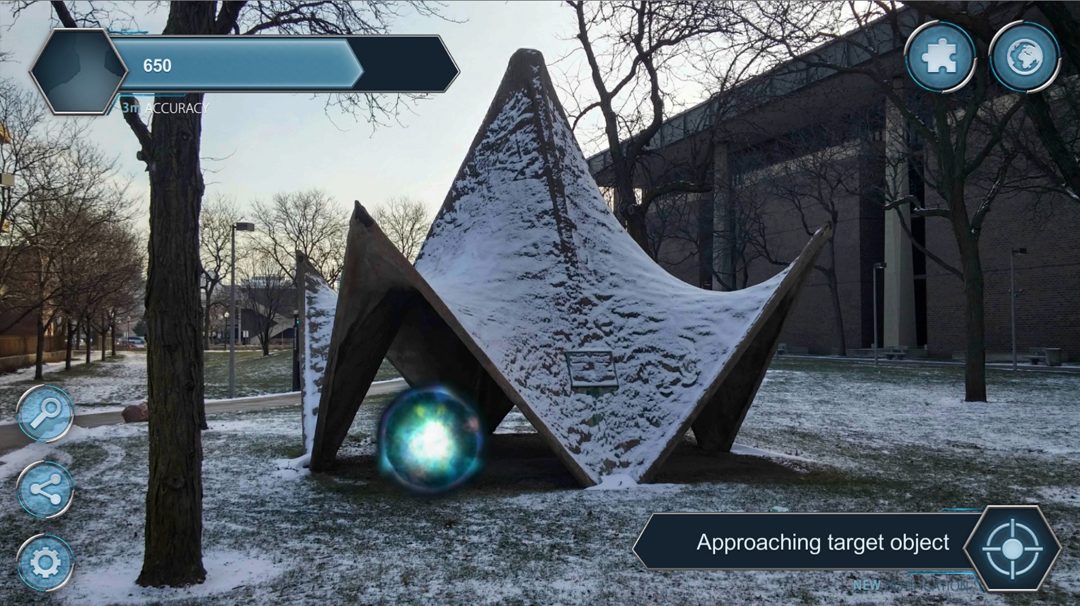DigitalQuest: A Mixed Reality Approach to Scavenger Hunts
March 19th, 2016 - March 23rd, 2016
Categories: Applications, Augmented Reality

About
Despite much progress and increased interest, mixed reality applications are not yet in widespread use by the general public. Our framework, DigitalQuest, facilitates the creation of mixed reality applications, providing application designers with the ability to add custom virtual content to the real world. Specifically it supports the creation of futuristic “scavenger hunts”, where multiple users search for virtual objects positioned in the real world, and where each object is related to a riddle or a challenge to be solved. Each player can compete with the other participants by finding virtual objects and solving puzzles, thereby unlocking additional challenges. Virtual objects are represented by animated 3D meshes locked to a determined position in the real world. The objects are activated when a player gets within a proximity threshold and then taps the object on the screen of his or her mobile phone. In our demonstration application, configurable virtual content appears, followed bya question that must be answered in order to be pass to the next challenge. The displayed content may consist of images, video and audio streams, graphical effects, or a text message that provides hints on how to advance in the game. The editor makes it easy to create puzzles that can be solved by exploring the surroundings of the virtual object in order to discover clues and making use of location-specific knowledge. When a participant figures out the correct solution, he or she scores points related to the complexity of the challenge and also unlocks remaining puzzles that cause new virtual object to appear in the world. At the end of the event, the player with more points wins.
DigitalQuest provides a general approach for adding user-defined virtual content to the real world, allowing the personalization of a “mirror world” that could be explored by anyone with a GPS-enabled mobile device simply by using our application. Though these Quests were originally meant for creative exploration and mixed reality scavenger hunts, our framework also could potentially support a wide range of applications, for example: team building and team-work enhancement events, tourism, virtual galleries, and cultural heritage. As we demonstrate in our case study, DigitalQuest can also be used to create augmented narratives, engaging users by telling an interactive story that makes use of real-world architecture. We also believe that our framework could be used to provide context-aware opportunities for learning. DigitalQuest could additionally be used for marketing purposes, allowing companies to organize events with customized content in order to make customers more attached to the brand. Ultimately, the framework is meant to provide a way for designers to flexibly express creative approaches to generating virtual content within the real-world.